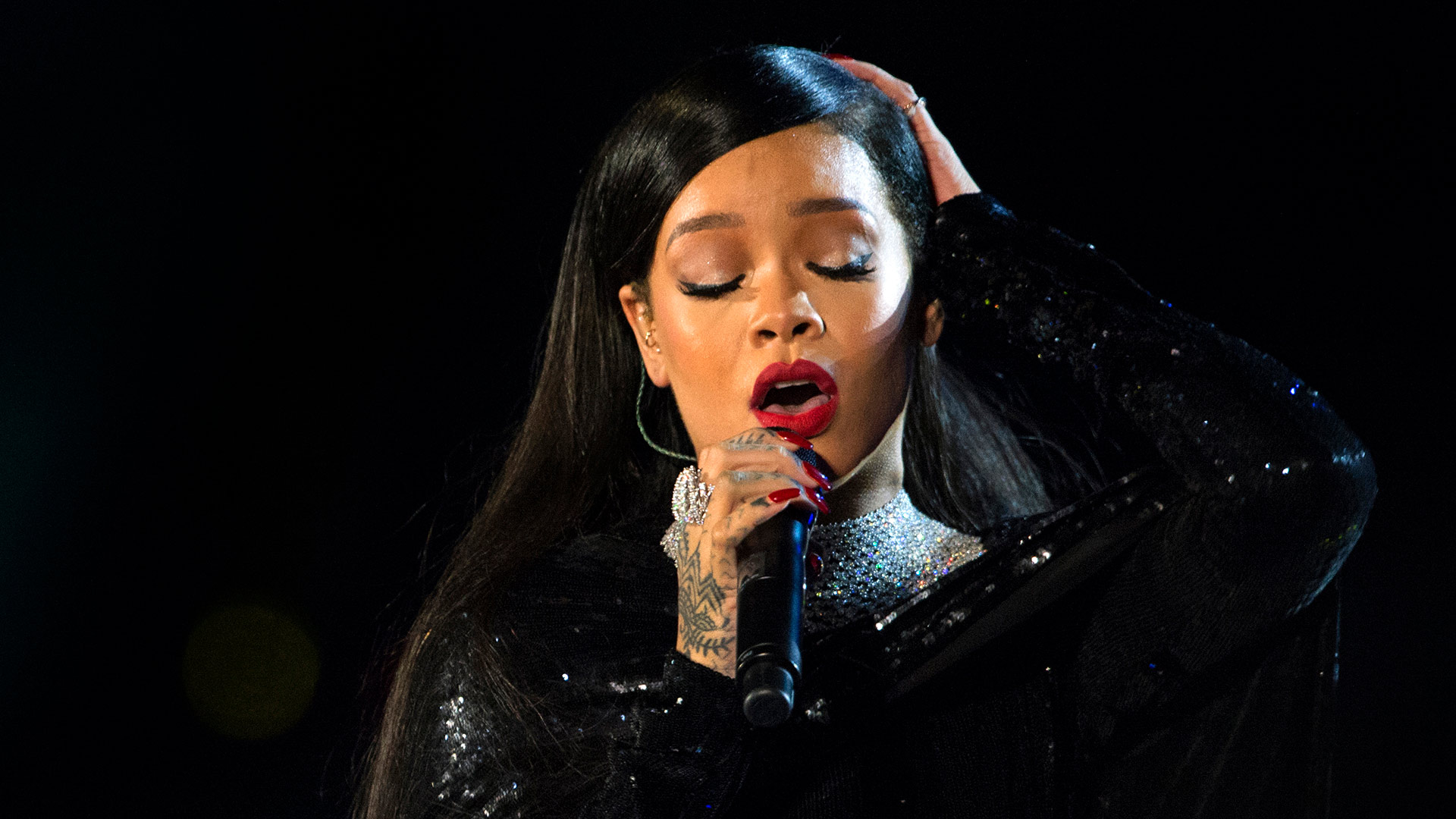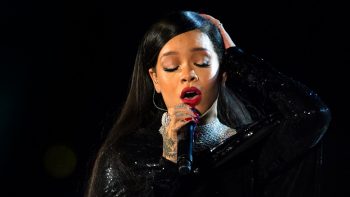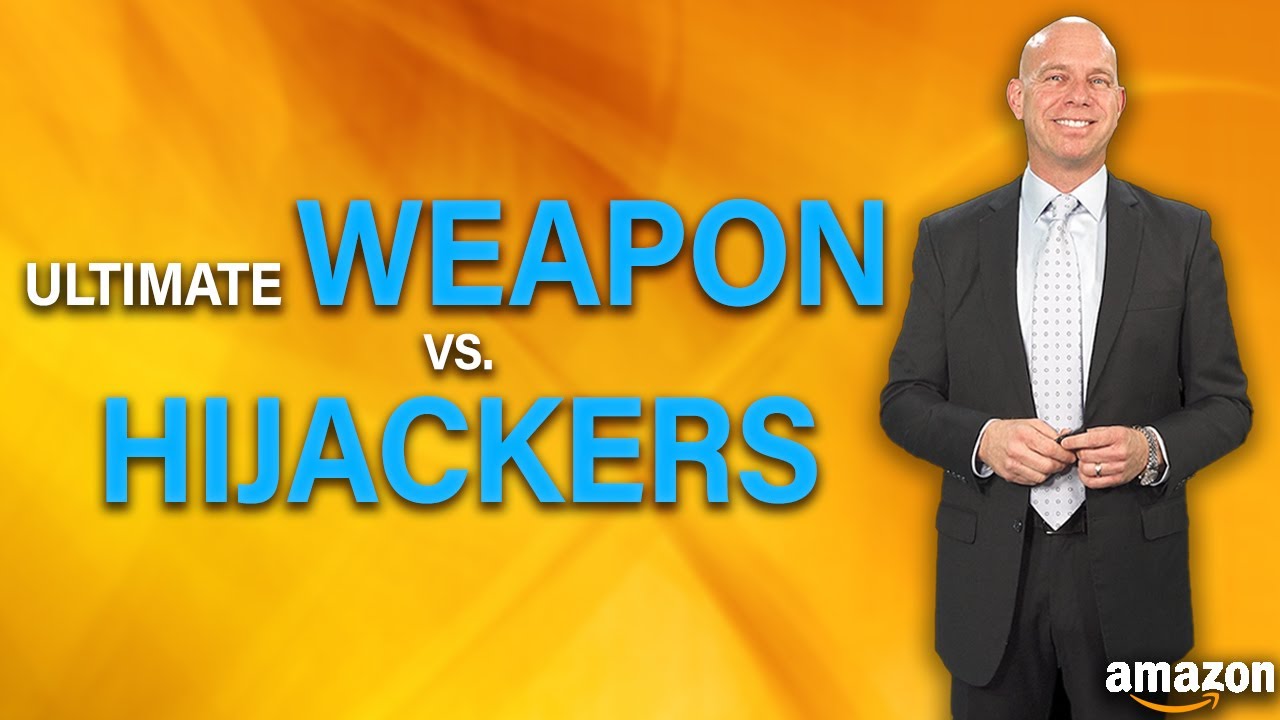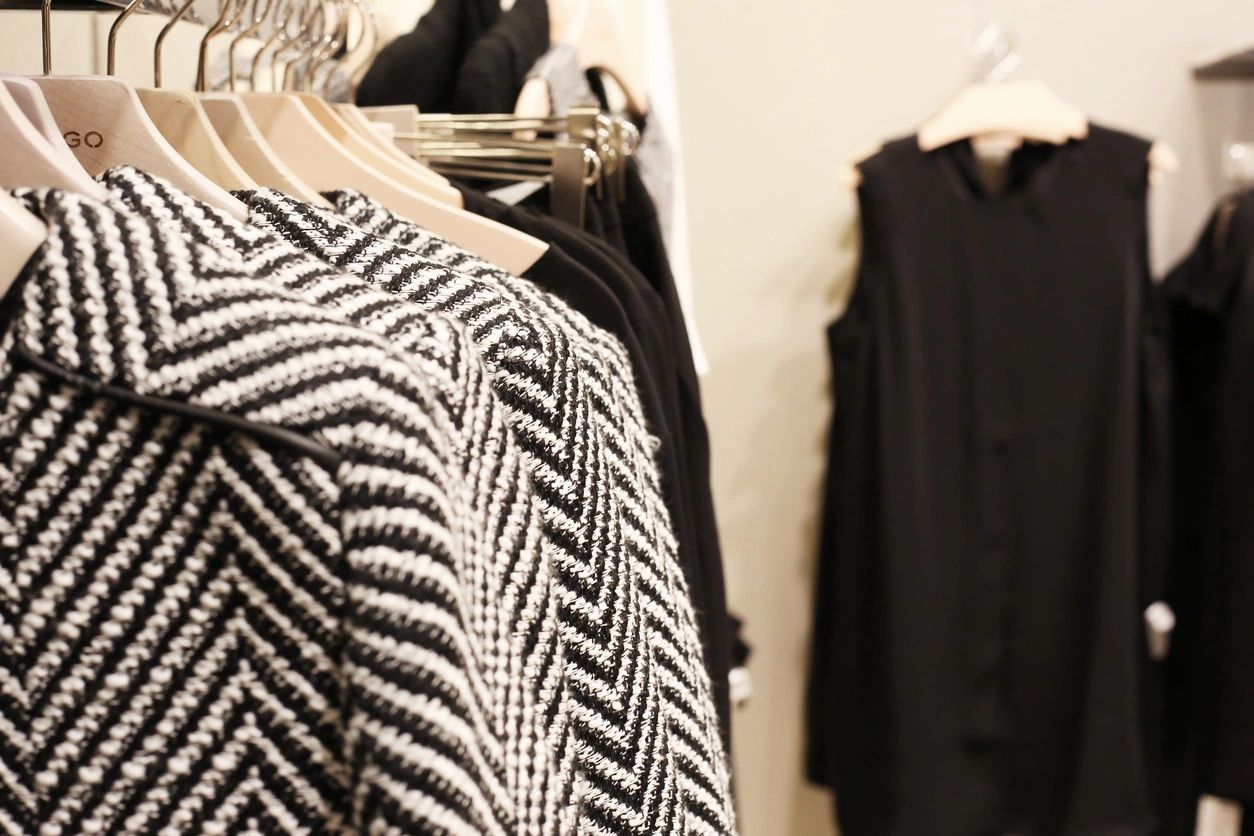
As a world-renowned musician or band, you have the unique ability to influence various aspects of American culture including social media usage, the success of music streaming services, and our nation’s youth.
Musicians and bands have a particularly big influence on merchandise sales and the fashion retail industry. This influence dates all the way back the 60’s when the Beatles had taken over London, the 70’s when David Bowie made glam rock acceptable, and the 90’s when hip hop legends Biggie and Tupac made saggy clothes and gold chains a hot commodity; musicians have always influenced the current fashion trends in society.
It is likely that there is a correlation between your sense of style and the type of music you listen to. However, as a musician or band, it is important that you keep an eye out for retailers who attempt to utilize and appropriate your image to increase their profits without your authorization, as you may be entitled to bring a lawsuit against this retailer.
One of the more notable cases in recent memory where an artist was able to successfully prevent a retailer from continuing to use their image came back in 2013 when pop star Robyn Rihanna Fenty, known to the world as Rihanna, took legal action against well-known fashion retailer, Topshop.
The cause of action in the matter arose back in March of 2012 when Topshop began selling a t-shirt adorned with an image of Rihanna derived from a photo taken back in 2011, when she was filming the video for her hit song “We Found Love” off of her album “Talk That Talk.” Although the photograph that the image on the t-shirt was based off of was from an independent photographer that Topshop had a license from, the retail store had never obtained a license directly from Rihanna and the pop star therefore alleged that Topshop had infringed on her rights when they proceeded to sell the t-shirt without her approval. Accordingly, Rihanna filed a lawsuit against Arcadia Brands Ltd., the parent company of Topshop, for $5 million in damages in The High Court Of Justice Chancery Division in London, alleging that the selling of the t-shirts with her image constituted infringement.
 Upon releasing its decision, Mr. Justice Birss for the High Court of London clarified that the issue at hand was not about “image rights”, explaining that there was no such thing as a celebrity’s free-standing general right to control the reproduction of their image in England. Birss continued to clarify that although a celebrity can maintain control over how their image is distributed when it comes to particular photos that they own the copyright for, that right is specific to those particular photos.
Upon releasing its decision, Mr. Justice Birss for the High Court of London clarified that the issue at hand was not about “image rights”, explaining that there was no such thing as a celebrity’s free-standing general right to control the reproduction of their image in England. Birss continued to clarify that although a celebrity can maintain control over how their image is distributed when it comes to particular photos that they own the copyright for, that right is specific to those particular photos.
Mr. Justice Birrs explained that the actual issue in this case centered around the law of “passing off” and whether Topshop had passed off the t-shirts with Rihanna’s image. “Passing Off” is when an individual or a business passes off or claims to be the originator or creator of a good or service when in reality, that is a misrepresentation and that good or service actually belongs to another party.
The High Court explained that in order for Rihanna to prove passing off, she would have to satisfy 3 elements:
(1) she had to demonstrate that she had a goodwill and reputation amongst the public
(2) the conduct that is the subject of the action constitutes a misrepresentation about her, such as by showing that the public was duped into buying the t-shirts because they thought Rihanna authorized them
(3) she must show that this misrepresentation caused damage to her goodwill.
To simplify the burden that Rihanna had to meet here, she had to prove 3 separate elements, (1) goodwill, (2) misrepresentation and (3) damage.
1. Discussion on 1st Requirement: Goodwill
When deciding whether Rihanna met the initial goodwill requirements to succeed in alleging a “passing off” action, the court looked at Rihanna’s “cool, edgy image” and the large merchandising and endorsement deals she has orchestrated, highlighted by her various endorsement agreements that she has and had with Clinique, Gillette, LG Mobile, and Nike.
Additionally, the court noted how Rihanna expressly prevented Bravado, a prior manager of her merchandising business, from acquiring merchandising rights related to high end fashion. Furthermore, the court looked at how Rihanna made an effort to promote an association between herself and the fashion industry to the public through various endeavors. Some of her more notable fashion related undertakings included her promotion of H&Ms Fashion Against Aids clothing line back in January of 2008, and her agreement with Gucci back in 2008 to promote Gucci products, which included Gucci accessories, clothing, and jewelry.
The High Court also gave consideration to Rihanna’s R slash logo, which played a significant role in her branding; the R slash symbol serves as an evident sign that a good is authorized by Rihanna. However, it was noted that just because a good does not contain the logo does not mean that the good was not authorized by Rihanna. Based on these findings, the court held that in 2012, Rihanna was and is still regarded by many as a style icon specifically for females between the ages of 13 and 30, as this demographic has shown to be particularly intrigued by Rihanna’s sense of style. If this demographic were to see Rihanna wearing a specific article of clothing, it is thought that they would deem that article of clothing to be approved and endorsed by Rihanna. Therefore, the High Court held that Rihanna had satisfied the goodwill requirement as the scope of her goodwill extended beyond the music industry and into the world of fashion where she was and is regarded as a style icon.
2. Discussion on 2nd Requirement: Misrepresentation
Mr. Justice Birrs and the High Court extensively discussed the second required element in misrepresentation and closely considered the various arguments made by Topshop’s counsel before ultimately finding that Rihanna had satisfied this requirement as well. Topshop argued that even though the t-shirt contained an image of Rihanna on it, customers buy the t-shirt because, aside from any appreciation that they may have for Rihanna, they like the t-shirt in its own individual capacity as a product and fashion-forward article of clothing.
Additionally, Topshop argued that there is nothing on the t-shirt which states that it is an official Rihanna merch item and customers do not perceive it to be one either… as the signature Rihanna “R” slash logo is nowhere to be found on the t-shirt, and there is nothing on the swing tag or any sort of labeling that would lead one to believe that it constitutes as official Rihanna merchandise. Furthermore, Topshop argued that there are many third party images on sale that belong to Knitmania UK Limited, a clothing design and manufacturing company that Topshop bought the t-shirts from, who specializes in applying images to clothing and providing this clothing to retailers. A third party image is an image that does not contain the direct authorization of the individuals depicted in the image, but is authorized by an independent third-party photographer who took the photo. Topshop also claimed there are many other articles of clothing that contain images of Rihanna without her authorization.
In response to these arguments, Mr. Martin Howe, a member of Rihanna’s counsel, argued that although a product with an image of Rihanna may not necessarily mean that Rihanna has endorsed that product, that customers in this specific case would be misled into thinking the t-shirt was endorsed by Rihanna because of the presentation of the particular image, and the nature of the t-shirt and Topshop’s reputation as a well-known retail giant. Howe pointed out how all of these factors, when taken together, would likely lead a substantial amount of customers to believe that the image was authorized by Rihanna and buy the t-shirt due to this belief.
In considering these arguments, the High Court explained how the public is not so foolish as to think that fashion is not influenced or endorsed in any way by celebrity musicians, and that customers are likely to recognize when a famous musician is endorsing an article of clothing or merchandise. However, the court recognized that this does not mean customers always want to buy something with an assumed celebrity endorsement and will sometimes just want to buy something with a picture on it because they genuinely like the picture, not because of any outside celebrity musician influence. The court also recognized that just because a customer recognizes a celebrity influence does not mean that they will automatically think that the image was authorized by the celebrity and that many images on t-shirts sold in the fashion industry containing images of pop stars fall into the third party image classification.
The court accepted Topshop’s contention that there were numerous articles of clothing on sale containing Rihanna’s image that were not authorized by her, but found that a substantial amount of these pieces contained images that fans would likely notice as album covers and that these images likely constituted copyright infringement and would lead fans to think that images based off of these album covers were officially authorized by the artist.
Next, the court focused on Topshop and its influence on consumers in the fashion industry, how it has used celebrity influence to promote its brand, and its direct relationship with Rihanna up until this point.
The court rejected the argument from Rihanna’s side that Topshop customers would automatically think that a celebrity authorized a garment anytime it contained an image of that celebrity, but did make note of the fact that Topshop is a well-respected fashion retailer and that they have done public collaborations with celebrities in the past, and concluded that its customers do not assume either way whether a good has been celebrity authorized.
The court gave much weight to the findings that Topshop had previously held a contest where the winner was awarded an opportunity to go on a shopping spree with Rihanna at its flagship store, and how this event supports the idea that Topshop makes a conscious effort to convey to the public its associations with famous and fashionable people. Rihanna’s counsel also referenced to other examples in the past where Topshop had promoted the fact that Rihanna was wearing or using Topshop items, such as when Topshop had promoted on its Twitter account that Rihanna had visited one of its stores saying “Ridiculously excited! @Rihanna is in our Oxford Circus store as we tweet. Ah, wonder what she’ll buy….” From this tweet, the court concluded that those who were in charge of Topshop’s Twitter account sought to take advantage of Rihanna’s visit and that Topshop was looking to emphasize to the 350,000 Topshop Twitter account followers and the public in general that Rihanna was wearing or considering wearing Topshop clothing.
The court rejected Topshop’s counsel’s argument that this activity on Twitter was of little significance and simply just chatter and gossip, explaining that when taking into account the primary demographic of Topshop’s customers, Twitter is an important social media platform for Topshop’s business and a primary method of communication used by Topshop to interact with it’s customers. The High Court further dismissed Topshop’s attempts to play down the significance of the tweet stating how Topshop was attempting to take advantage of Rihanna’s status as a fashion influencer and how Topshop thought it would be able to sell more products through the promotion of Rihanna’s image. The court also rejected the argument from one of Topshop’s witnesses that purchasers of the t-shirt would be more likely to be a bigger fan of Topshop than Rihanna finding that a large number of buyers would likely be both fans of Rihanna and Topshop, and that the two were not mutually exclusive categories. When being confronted with the issue over the t-shirt initially being titled “RIHANNA TANK” during its first few days of online sales before eventually being removed, the court found this fact to be insignificant since it was only labeled that title for a few days.
When briefly discussing the significance of the particular image used on the t-shirt, the High Court noted that fans of Rihanna would likely find similarities between the image used on the t-shirt, and the album cover and music video shoot that the shirt’s image was derived from.
In wrapping up its discussion on the second requirement of misrepresentation, the High Court concluded that based on the circumstances surrounding the image, it is likely that many would perceive the t-shirt to be a Rihanna-authorized product. In reaching this conclusion, the court relied on the past dealings and the existing public relationship between Rihanna and Topshop leading up to this point highlighted by the shopping competition in 2010 and the Topshop store-visit in 2012 and how their publicly known relationship with each other increases the likelihood that a Topshop customer would believe that the t-shirt is authorized by her.
Despite there being no evidence of her authorization on the swing tag or neck label, the court found that this was not enough to overcome the general overall impression that the t-shirt was authorized by Rihanna. Ultimately, the court held that misrepresentation had occurred; holding that fans of Rihanna who recognize this image will view it as more than a picture of her as an artist and specifically associate the image with her album “Talk That Talk”, and how the idea of her authorization will serve as incentive to her fans to buy the t-shirt.
The court explained that misrepresentation can occur in a couple of ways in this case, with one being where an individual buys the t-shirt because they think she has approved of it and another being where an individual buys it because of the value of Rihanna’s perceived authorization.
3. Discussion on 3rd Requirement: Damage
The High Court only briefly discussed the third passing off element of damage, but nothing more was needed to determine that Rihanna had also satisfied this requirement. The court reasoned that many t-shirt buyers would be deceived into purchasing the t-shirt because of a false belief that it had been authorized by Rihanna, which would be damaging to her goodwill once these buyers discovered she did not authorize the t-shirts. Not only would this negatively impact her merchandising business but the court also noted that this would result in her losing control over her reputation in the fashion industry. The court concluded its discussion on the damage element by stating that just because the t-shirt was of high quality did not mitigate or cancel out these damages.
Rihanna Protected Merchandise from Counterfeiters
After finding that Rihanna had proved all three of the requirements to succeed on a passing off claim, the High Court Of Justice Chancery Division in London held that although the act of selling a t-shirt with an image of a famous person did not constitute passing off, the sale of these Topshop t-shirts with Rihanna’s image without obtaining her approval (given the particular circumstances discussed above and the past history between the two) did constitute as an act of passing off.
Accordingly, the High Court Of Justice Chancery Division in London found for Rihanna and issued an injunction against Topshop that prevented the retailer from continuing to sell the t-shirt without informing purchasers that Rihanna had not authorized it. As a result of their dissatisfaction with the High Court’s ruling, Topshop appealed to the Court of Appeal of England and Wales.
On appeal, Topshop argued that the High Court of Justice Chancery Division in London had erred in multiple respects in reaching its decision, which included that they had failed to distinguish an endorsement case from a merchandising case, and that they had failed to realize that the law of passing off provides that articles of clothing containing such images as the one at issue in this case, to be origin neutral.
Despite these arguments, the three judges of the Court of Appeals hearing the case unanimously dismissed the appeal and upheld the decision of the High Court Of Justice Chancery Division in London finding for Rihanna.
This article was researched and written by CJ Rosenbaum, Esq., and Anthony Famularo, Esq., the founding partners of Rosenbaum Famularo, P.C., law firm behind AmazonSellersLawyer.com and an incredible law student who participated in the firm’s Summer Associate Program and is a current paralegal: RJ Cherpak 2019 J.D. Candidate at the Hofstra University School of Law.








